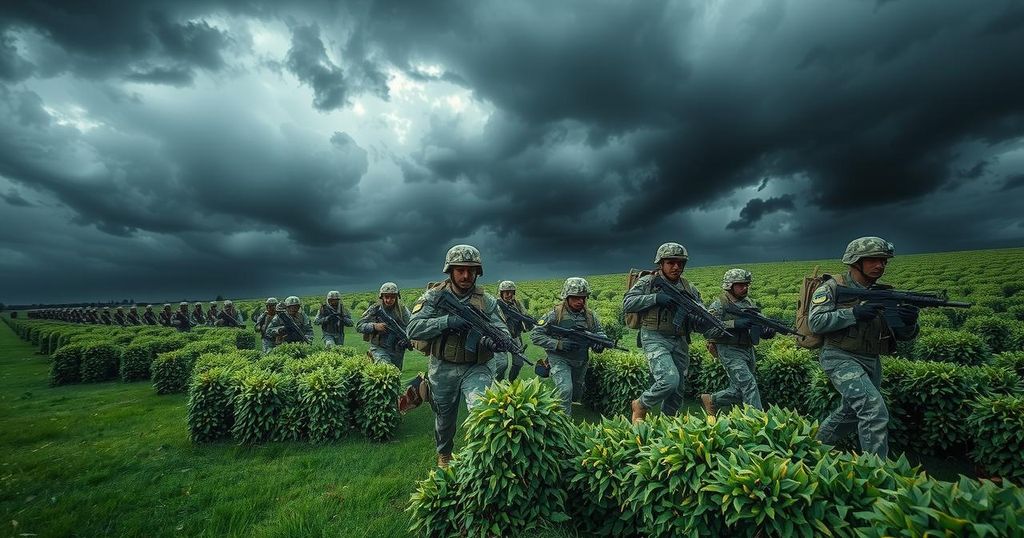Burundi has deployed troops in eastern DRC amid escalating violence from Rwandan-backed M23 fighters. The UK has suspended aid to Rwanda, seeking a political solution to the conflict. The situation has led to significant casualties, with over 7,000 fatalities reported. International efforts to mediate peace are underway, with former leaders facilitating a new peace process.
Burundi has commenced the deployment of troops in eastern Democratic Republic of Congo (DRC), where the Rwandan-backed M23 group has recently captured significant cities, escalating the region’s prolonged violence. The UK has consequently announced a suspension of most direct bilateral aid to Rwanda, citing concerns over military resolutions to ongoing conflicts.
The M23, revitalized since 2021, has seized critical territories, including Bukavu and Goma, exacerbating a humanitarian crisis that has persisted for nearly three decades, leading to millions of fatalities. A UK government representative stated, “Rwanda may have security concerns but it is unacceptable to resolve these militarily. There can only be a political solution to this conflict.” The UK aid suspension will remain until substantial advancements are made in mitigating hostilities.
As of now, Burundian soldiers are reportedly deploying towards Luvungi to counter M23’s progress toward Uvira. Eyewitnesses have recounted movements of heavily armed troops across the Ruizi River and towards Luvungi to support Kinshasa’s efforts. Concerns about safety have led to the exodus of inhabitants from Kamanyola, located near the escalating violence. Residents fear renewed clashes as the situation develops.
In response to the unrest, the African Union has appointed former leaders to facilitate peace efforts while the International Criminal Court (ICC) has initiated investigations into the violence. ICC prosecutor Karim Khan expressed grave concerns about the deteriorating situation, highlighting the urgency for peace. Collaborative efforts between the East African Community (EAC) and the Southern African Development Community (SADC) aim to establish a ceasefire and necessary humanitarian assistance.
Prime Minister Judith Suminwa Tuluka has highlighted the disturbing human cost of the conflict, citing over 7,000 fatalities since January, with UN reports indicating more than 3,000 deaths since late January amid escalated M23 activities. The ongoing humanitarian crisis underscores the necessity for militaristic engagements to cease and political discussions to take precedence in resolving the conflict in eastern DRC.
The escalating violence in eastern DRC, compounded by the deployment of Burundian troops and the suspension of UK aid to Rwanda, highlights a dire humanitarian crisis that has persisted for years. With key international bodies calling for a political solution, the situation remains critical. Urgent attention to ceasefire agreements and humanitarian efforts is imperative to provide relief and stability in the region.
Original Source: www.communitynewspapergroup.com




